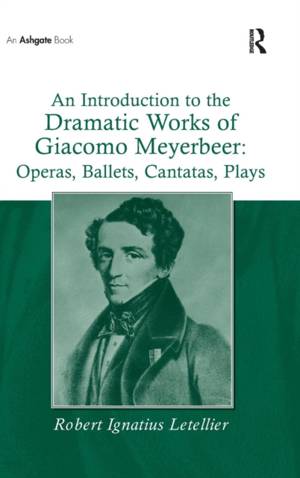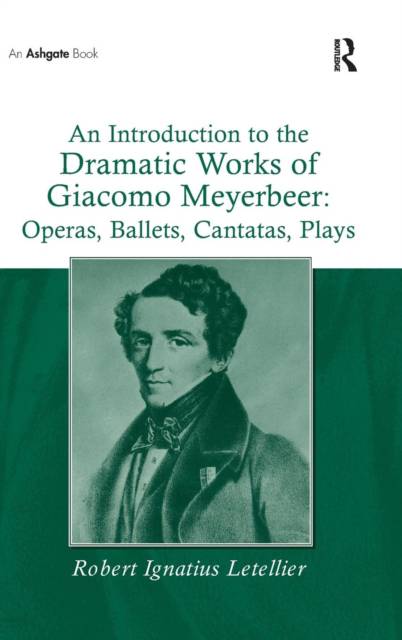
- Retrait gratuit dans votre magasin Club
- 7.000.000 titres dans notre catalogue
- Payer en toute sécurité
- Toujours un magasin près de chez vous
- Retrait gratuit dans votre magasin Club
- 7.000.0000 titres dans notre catalogue
- Payer en toute sécurité
- Toujours un magasin près de chez vous
An Introduction to the Dramatic Works of Giacomo Meyerbeer
Operas, Ballets, Cantatas, Plays
Robert Ignatius Letellier
Livre relié | Anglais
305,45 €
+ 610 points
Format
Description
Meyerbeer (1791-1864) was a great musical dramatic artist in his own right. This consideration of Meyerbeer's operas provides an approachable introduction into the composer's operatic creation.
Spécifications
Parties prenantes
- Auteur(s) :
- Editeur:
Contenu
- Nombre de pages :
- 272
- Langue:
- Anglais
Caractéristiques
- EAN:
- 9780754660392
- Date de parution :
- 28-01-08
- Format:
- Livre relié
- Format numérique:
- Genaaid
- Dimensions :
- 156 mm x 234 mm
- Poids :
- 557 g

Les avis
Nous publions uniquement les avis qui respectent les conditions requises. Consultez nos conditions pour les avis.






